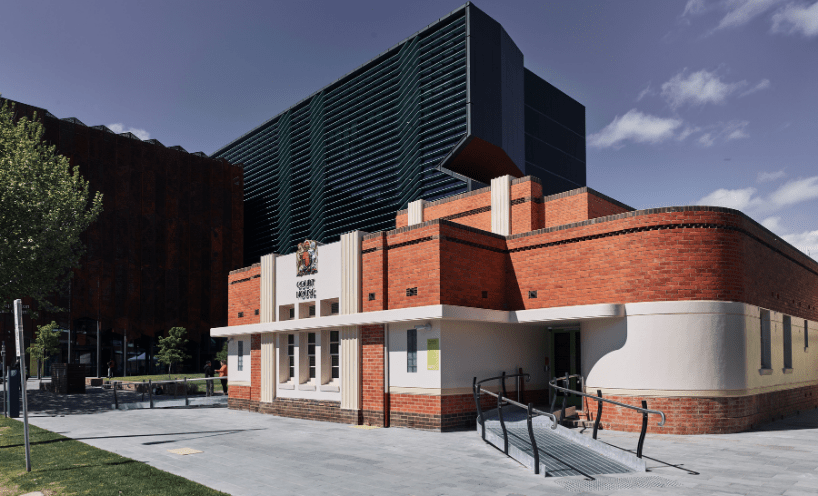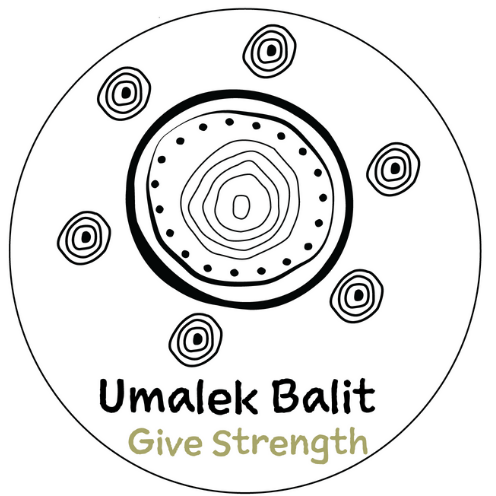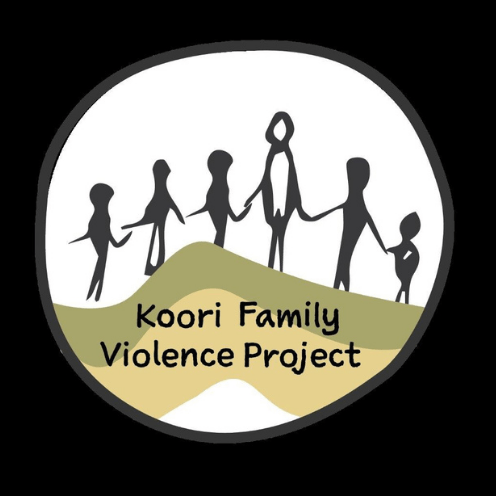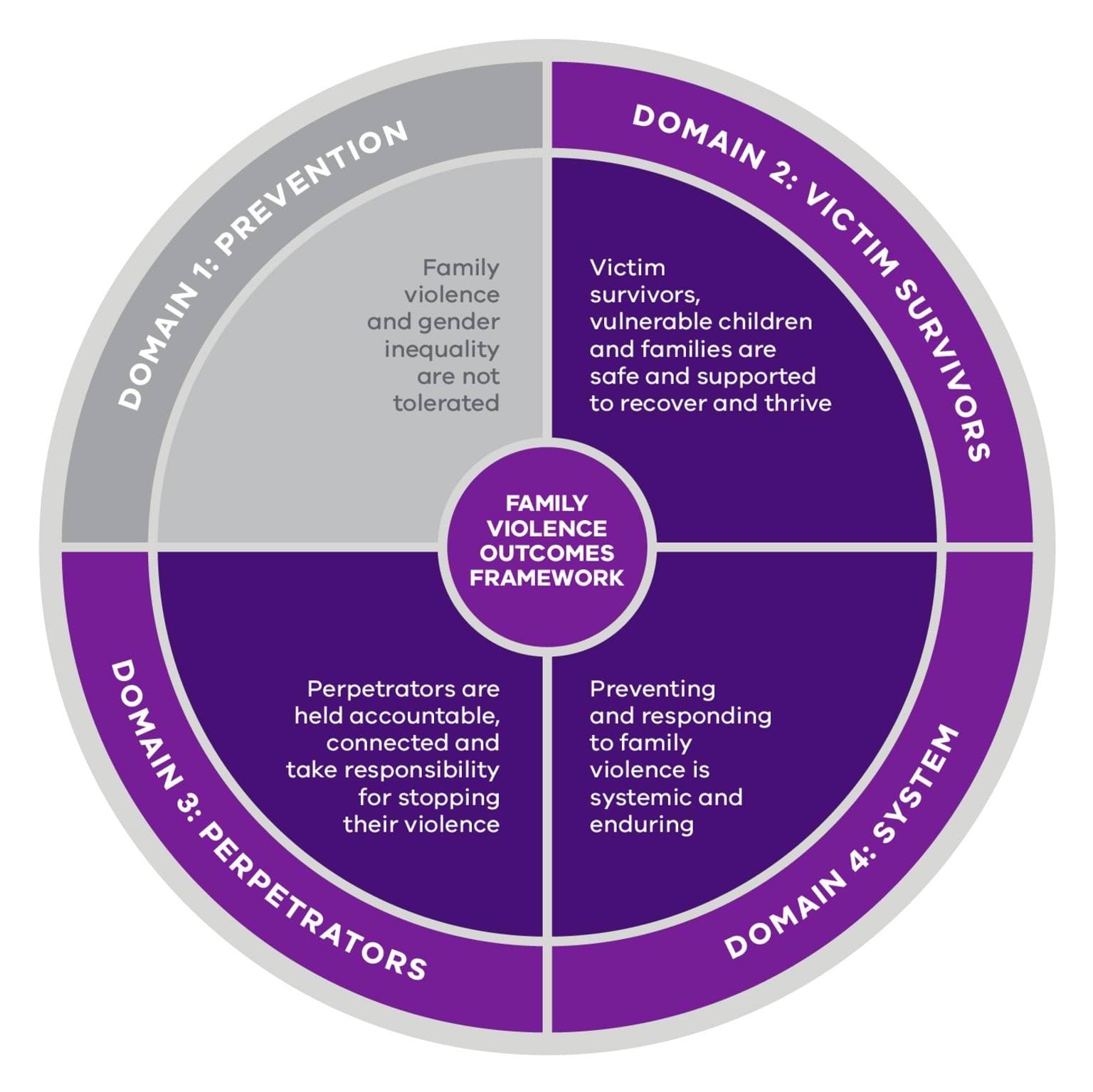Building momentum
The legal system and the courts themselves are the most 'unreal' place for many victim survivors. They are like a foreign land, with its own language and landscape. Victim survivors are vulnerable, hyper alert, fearful and anxious…
Court is a crucial part of a victim survivor’s journey when seeking protection from family violence. We are committed to having a court system where victim survivors of family violence feel physically, emotionally and culturally safe – a court that is accessible and where our diverse Victorian community, including Aboriginal Victorians, have equal access to justice.
Four years on from the Royal Commission into Family Violence, the courts have been transforming their response to family violence to make court safer, ensure people have the support they need, and keep perpetrators in view.
Specialist family violence responses, such as family violence applicant and respondent practitioners, are currently available at all headquarter courts.
Specialist Family Violence Courts build on this and provide further specialisation. Three Specialist Family Violence Courts are now operating, with another four to be delivered. Key features include:
- enhanced safety features, such as separate entrances for victim survivors and remote hearing facilities
- magistrates and court staff with training in family violence
- processes that give victim survivors more choice about how they want to participate in their court proceedings, for example, in person or remotely
- magistrates who have powers to mandate that perpetrators of family violence engage in programs to change their behaviour
- a dedicated service for Aboriginal Victorians
This trauma-informed approach to family violence means that victim survivors have more control over their court experience and have greater access to support services that can help them at court and beyond.
The safe waiting space provided me with a sense of control because I was given a choice.
Coronavirus (COVID-19) has changed how the courts operate and has prompted courts to quickly adapt and make greater use of technology.
- The new Online Magistrates’ Court allows court users to participate in their hearing remotely.
- The fast-tracked Family Violence Intervention Order (FVIO) online form offers more choice and control for victim survivors when they apply for a FVIO.
The Magistrates’ Court will continue to develop and refine these initiatives with a view to expand and embed their use in the coming years.
While courts have made considerable progress to improve the safety and experience of victim survivors, there is still more to do. Courts will continue to improve their service to all Victorians, to keep victim survivors and their families safe through the court system and to ensure that perpetrators of family violence are appropriately held to account.
Progress since 2016
Court reforms are fundamental to Victoria’s 10-year plan to end family violence. Key activities which have been delivered since the Royal Commission have been grouped here into five areas.
Delivery to 2023
Activities for 2020-2023 will continue to progress the courts’ family violence reform. This overview groups delivery of our planned courts activities to 2023 under the relevant Family Violence Outcomes Framework domains.
Connecting courts across the reform
The ongoing delivery of connected reform activity is building further strength into the court reforms. For example:
- strengthening legal responses to family violence incidents through exploring opportunities for new legislation
- providing more funding and training to integrate legal assistance earlier in the response to family violence and improving family violence legal literacy to support better court outcomes
- extending MARAM training to other workforces intersecting with family violence
- integrating services across the reform and providing clearer referral pathways from courts to better support victim survivors with wraparound services
Reform-wide priorities
Activities to strengthen court services are informed by our reform-wide priorities of intersectionality, Aboriginal self-determination and lived experience.
Intersectionality
Victim survivors from diverse communities face a range of challenges and barriers when accessing the court system and processes. Initiatives to address this include:
- dedicated family violence practitioners at every headquarter court to support victim survivors and perpetrators during their court experience
- LGBTIQ+ family violence practitioners at the Neighbourhood Justice Centre, Melbourne Magistrates’ Court and Heidelberg Magistrates’ Court provide specialised practitioner support to the LGBTIQ+ communities
- the Umalek Balit program provides a dedicated support service for Aboriginal Victorians
The courts will continue to build on specialist programs which reflect the trauma-informed approach to family violence such as the LGBTIQ Family Violence Practitioners Pilot.
Aboriginal self-determination
Umalek Balit, which means ‘give strength’ in& Woiwurrung, the language of the Wurundjeri people of the Kulin Nations, is a dedicated Aboriginal family violence support program.
Umalek Balit supports self-determination and aims to redress the historical inequities experienced by Aboriginal people within the justice system. Umalek Balit has been developed in conjunction with representatives from Aboriginal Community Controlled Organisations, Elders and Respected Persons, Dhelk Dja, Regional Aboriginal Justice Advisory Committees and court staff.
A cultural safety professional development program is introduced at each court location prior to Umalek Balit being implemented, enhancing workforce training and safeguarding Aboriginal court staff, including Elders and Respected Persons, who are involved in family violence-related hearings.
The Umalek Balit program:
- builds the court’s knowledge of Aboriginal people in Victoria and the barriers faced in accessing the justice system
- provides culturally safe and appropriate support, information and referrals to services
- improves the court’s capacity to engage with Aboriginal respondents and applicants in family violence matters
- improves the Victorian Aboriginal community’s confidence in the courts and justice system
Women’s and men’s practitioners work with Aboriginal people to guide them through the court experience. This includes offering culturally relevant, non-legal expertise regarding family violence matters.
Since Umalek Balit was established, the dedicated Koori Practitioner services have enhanced safety and improved perpetrator interventions. Umalek Balit improves alignment to Aboriginal self-determination through stronger engagement with Aboriginal community support services and creates greater cultural safety for Aboriginal clients and court staff.
Koori Practitioners are available at Melbourne, Shepparton, Mildura, and Ballarat Magistrates’ Courts.
I’m pleased that Aboriginal people are supporting Aboriginal people.
Koori Family Violence Practitioners support the Umalek Balit program.
This case study was collected from information provided by a Koori Women’s Family Violence Practitioner.
CASE STUDY – Koori Women's Family Violence Practitioner
Fiona* met with the Koori Women’s Practitioner in a culturally safe space at the local court. As they introduce themselves, the practitioner builds rapport and creates a culturally appropriate and safe space where Fiona feels comfortable to share her story.
She explains that she has been in a relationship with Brian* for 3 years and they have one child together, Abby*, aged 2.
Fiona has issues with her memory following a head injury she sustained after Brian assaulted her. She said that throughout the course of their relationship Brian would hit her in front of Abby, control her by isolating her from family and friends, make threats and would damage property.
Brian has been charged with unlawful assault. Fiona has had enough of Brian’s behaviour and no longer wants to be in a relationship with him. The Koori Women’s Practitioner talks with Fiona about what her options are, and what supports are available, now that she has decided to end the relationship.
After the initial consultation, the Koori Women’s Practitioner makes sure Fiona understands the court process and conditions of the intervention order and talks with Fiona about how she might report a breach of the order to the police.
The practitioner works with Fiona on safety planning and makes a referral to a service of Fiona’s choosing. The practitioner provides a list of other services, both mainstream and Aboriginal.
She advises Fiona that she may be eligible for Victims of Crime Assistance (VOCAT) to assist with recovering personal items as a result of the offences committed against her and Abby.
The Koori Women’s Practitioner continues to support Fiona throughout the course of the intervention order matter as well as the VOCAT process if she wishes to proceed with an application.
*Note: Names have been changed.
Lived experience
Lived experience informs the courts’ family violence reform.
A family violence consultant advises the Magistrates’ Court of Victoria on lived experience for victim survivors and their families. They provide advice on the design of new service models, operational processes and policies developed as part of the courts' family violence reform.
The views and experiences of court and family violence service users are regularly engaged during evaluations, such as the Remote Hearing Pilot Evaluation and the Evaluation of the Magistrates’ Court-led Family Violence Reform.
The courts are working to improve access to justice and help victim survivors feel supported and safe when they encounter the justice system, wherever they are in Victoria.
Measuring outcomes
Family Violence Outcomes Framework
Delivering the activities for this priority area will likely have the greatest impact in achieving outcomes against the following domains:
Royal Commission recommendations
The Victorian Government has committed to implement all 227 recommendations from the Royal Commission into Family Violence.
Of the recommendations still in progress, nine relate to courts.
Summary of activities to 2023
Updated



